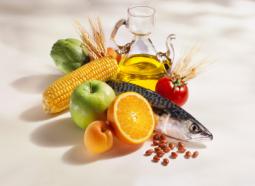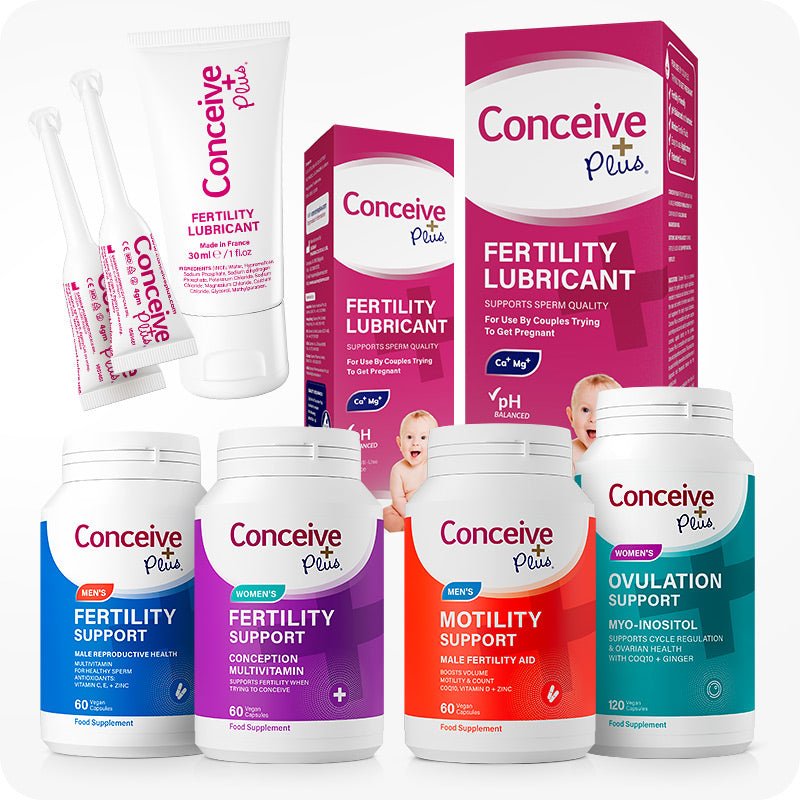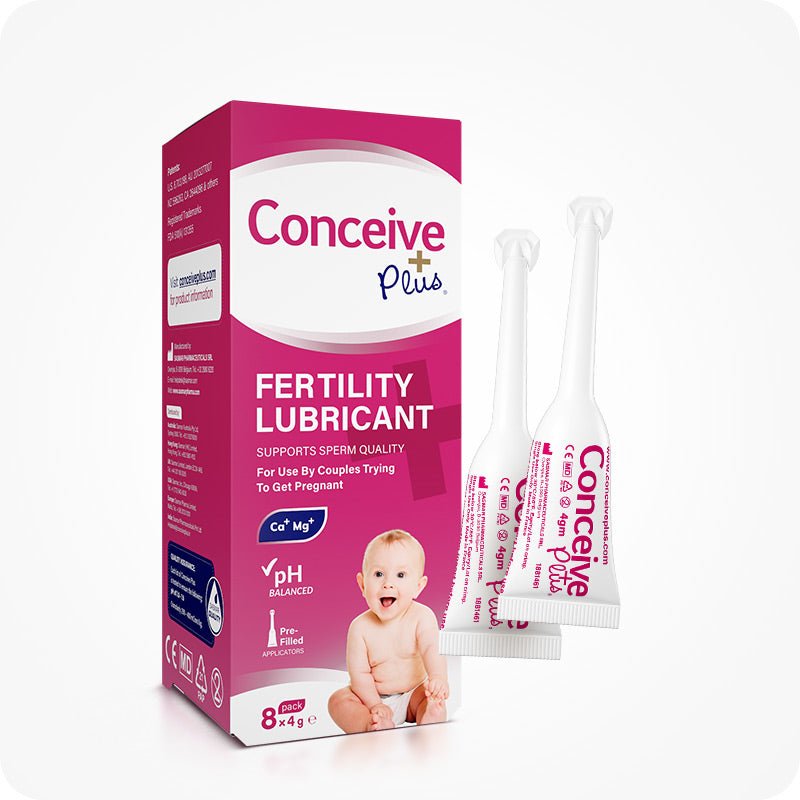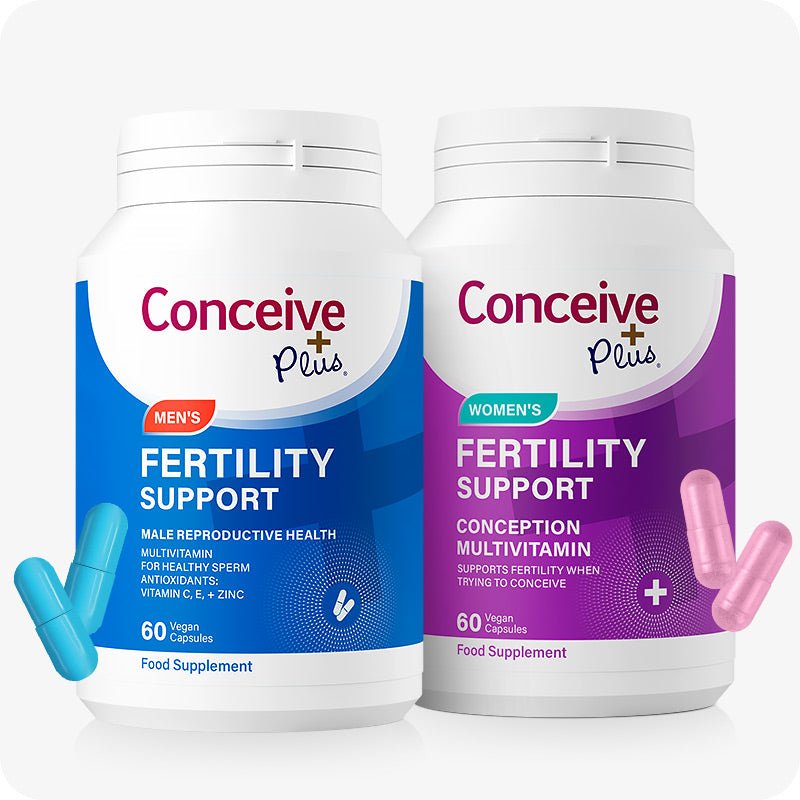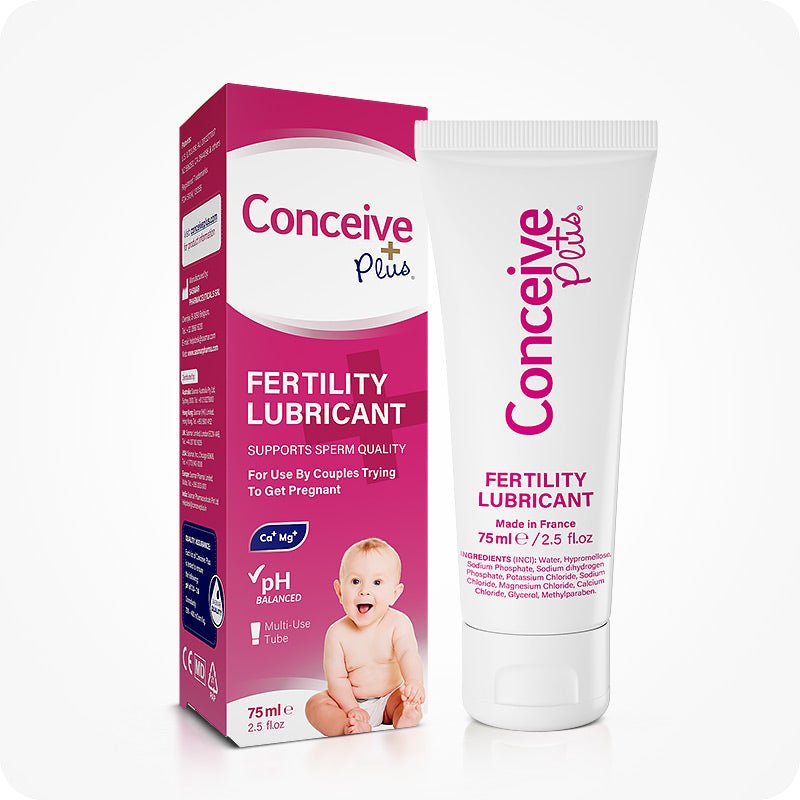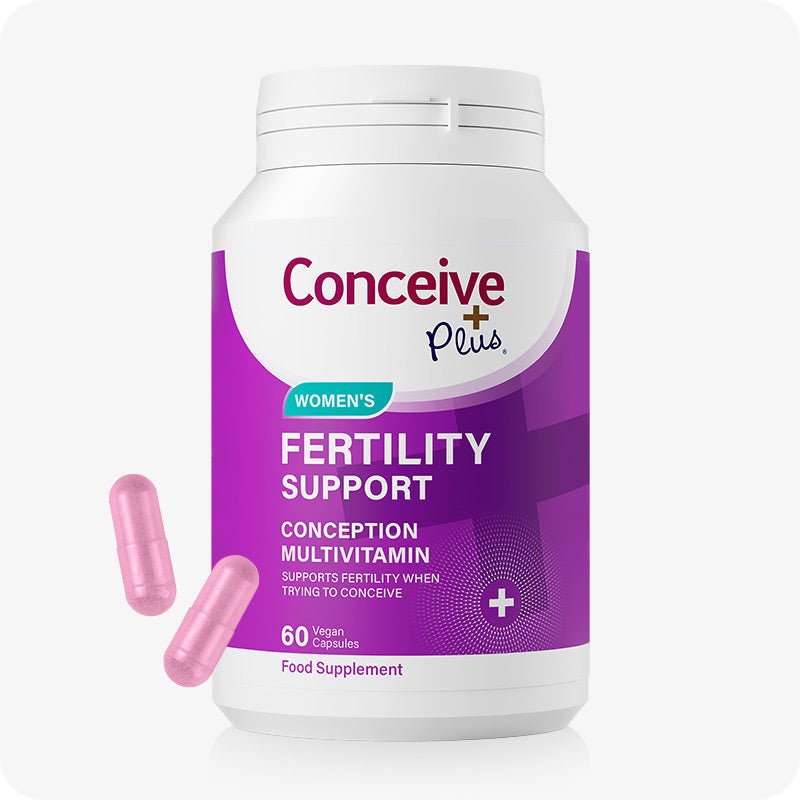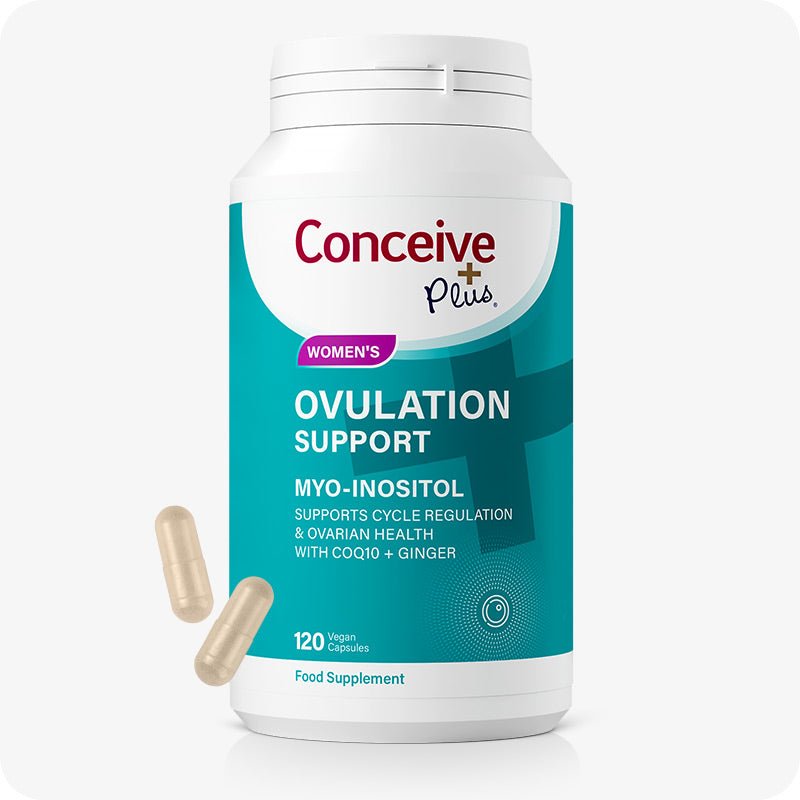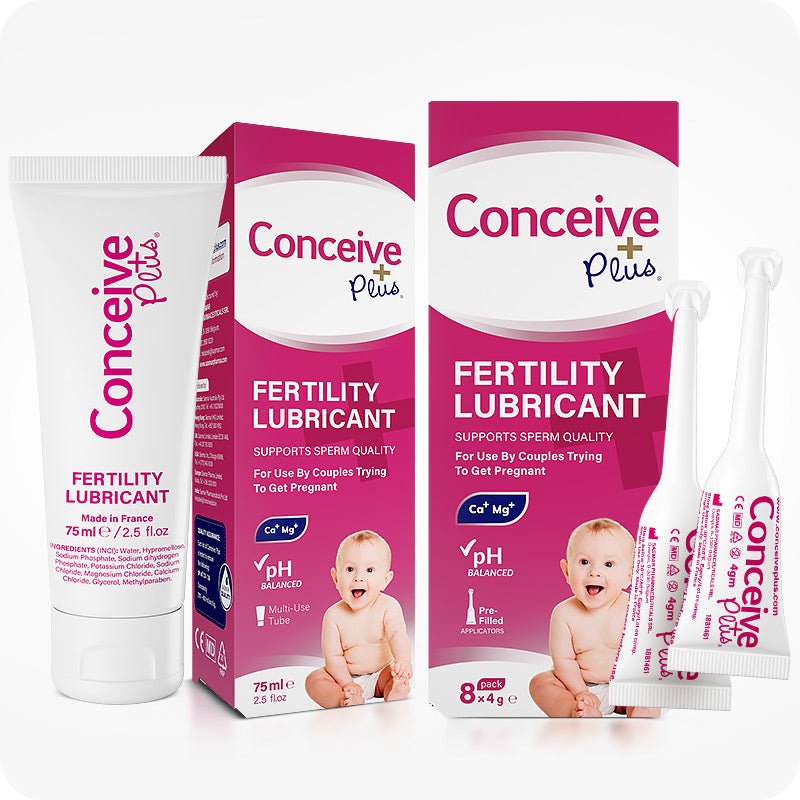The Best Fertility Foods and Supplements When Trying to Conceive

Did you know that consuming the best foods and supplements for fertility can improve your chances of getting pregnant? And that eating the wrong foods can lower your chances of conceiving. Prenatal vitamins, healthy food, and the best fertility supplements for women are essential to support reproductive health and the early stages of pregnancy.
A balanced intake of fertility foods and supplements can significantly support hormonal balance, egg quality, and overall reproductive wellness. For tips on how to get pregnant and gain a better understanding of how to get pregnant fast, read on. In this article, you’ll learn about the helpful fertility enhancing supplements and the best vitamins to help fertility and improve your chances of conceiving.
We also cover what foods you want to avoid to improve fertility and help you start your family.
Why Are Fertility Foods, Supplements, and Vitamins Important When Trying to Conceive?
Fertility foods and supplements to help fertility include key vitamins and minerals that make your baby-making journey easier. In addition to boosting the female reproductive system, essential nutrients can help increase your chances of conception and ensure a healthier pregnancy is enjoyed by you and your baby.
When choosing the best supplements for fertility, however, you’ll want to guarantee that you’re getting the right balance of nutrients. While buying the first one you come across might help, this article will teach you what to look for in the best fertility supplements for optimal results.
What are The Best Vitamins To Take For Fertility?
To fully understand why fertility supplements and fertility-rich foods are important when couples are hoping to conceive, an understanding of how vitamins affect fertility is helpful.
When trying to start a family, specific vitamins are recommended as the best prenatal vitamins for boosting fertility and supporting female reproductive health. Below, we explain why vitamin D, B-vitamin complex, and vitamin E are three of the best vitamins for fertility.
Vitamin D
One of the most important vitamins for improving fertility and increasing women’s chances of getting pregnant is vitamin D. Research shows that vitamin D and fertility are closely linked [1]. When taken as a prenatal vitamin, it helps regulate reproductive hormones and improve ovarian function.
When the female reproductive hormones are balanced, menstrual cycles become more regular and it’s easier to recognise when you are ovulating. Therefore adequate vitamin D levels can enhance fertility, while vitamin D deficiencies are known to decrease women’s probability of conceiving.
Unfortunately, due to the lack of sunshine in the UK, many people are believed to be deficient in vitamin D. If you are trying to conceive, ensure your prenatal vitamins UK include vitamin D.
What Fertility Boosting Foods Contain Vitamin D?
Even though health experts recommend that we should obtain the majority of our vitamin D from being out in the sunlight, it’s not always easy in the UK climate.
Therefore supplementing vitamin D through a daily vitamin is highly recommended for women trying to conceive in the UK and throughout their pregnancy.
Nutritional foods that are rich in vitamin D include the following:
- Egg yokes
- Cheese
- Chicken breast
- Mushrooms
- Vitamin-D fortified foods
- Some dairy and plant-based milk
- Sardines
- Salmon
- Trout
B-Vitamin Complex For Improved Fertility
Another group of vitamins for fertility is the B-vitamin complex, which includes vitamins B1, B2, B3, B6, B12 and folate (vitamin B9) [2]. Most people may know folic acid as opposed to folate. The difference is that folic acid is the manmade, or synthetic, version of folate normally added to foods and supplements.
Known to help in the production of DNA and RNA, fertility vitamins like B12 and folic acid are vital to assist in the early development of the foetus.
Vitamin B12 also supports healthy ovulation and hormone regulation, making it one of the best vitamins to help fertility. Some fertility supplements for women can include vitamin B12 and folic acid. If not, they are typically found in fertility vitamins female versions, but they can also be consumed through food.
What Foods Provide Vitamin B12 and Folic Acid for Improved Fertility?
Some of the best fertility foods for getting pregnant which are rich in folate include:
- Asparagus
- Broccoli
- Beets
- Brussels sprouts
- Citrus Fruits
- Asparagus
- Kale
- Legumes
- Citrus fruits
- Nuts
Vitamin E For Improved Fertility
The third on the list of the best vitamins for fertility is vitamin E. And it is not only helpful for female fertility it supports sperm health too [3].
As an antioxidant, vitamin E minimises cell damage and helps thicken the uterus lining for the healthy implantation of a fertilised egg. Vitamin E is also known to help reduce the symptoms of polycystic ovary syndrome to improve ovulation and increase the chances of pregnancy. In addition, a daily intake is also helpful to reduce pain and bloating around menstruation.
Lastly, taking vitamin E when trying to conceive can be particularly helpful to women with a high risk of miscarriage. When taken daily as one of the prenatal pregnancy vitamins, it can aid in thickening the amniotic sac and protecting it from rupture.
When it comes to sperm health, vitamin E is known to protect cell membranes and eradicate free radicals that affect sperm’s ability to swim. This means that fragile sperm cells are more protected from adverse factors that decrease their vitality and their motility is increased.
When sperm count is higher and more healthy sperm are swimming through the reproductive tract to a mature egg, the probability of fertilisation and conception is much higher. When selecting vitamins for fertility female health, it's essential to choose those that are clinically formulated to support hormonal balance, ovulation, and egg quality.
What Foods Contain Vitamin E?
Vitamin E is abundant in a lot of foods and it is therefore rare that women are deficient in vitamin E. However, when trying to conceive and looking to enhance fertility women can always benefit from fertility food supplements containing vitamin E.
If you suffer from celiac disease and you’re trying to conceive, it’s wise to have your vitamin E levels checked by your doctor to ensure your body is metabolising vitamin E.
Vitamin E is found in most plant-based oils, nuts, seeds, fruits, and vegetables. It’s also abundant in:
- Asparagus
- Avocados
- Beet greens
- Mango
- Peanut butter
- Pumpkin
- Spring greens
- Spinach
For reproductive support when preparing to get pregnant always check that the vitamins in prenatal vitamins include vitamin D, B-vitamin complex, and vitamin E. Having a deficiency in any of these vitamins and fertility issues could make your baby-making journey more challenging.
Foods To Avoid For Better Fertility
As outlined above, certain foods can improve fertility due to their vitamins and nutrients. Foods that lower or negatively affect female fertility should be avoided when trying to conceive.
These include:
Processed foods that are high in additives, sugars, and unhealthy fats. These foods can disrupt hormone balance and impact fertility.
Trans fats, which are abundant in fried foods and commercially baked goods are known to interfere with ovulation and hormone regulation and are best avoided when trying to get pregnant.
Foods that are high in sugar, like fizzy drinks, cakes, sweets, and chocolate can lead to insulin resistance, which can affect ovulation and worsen PCOS symptoms.
Fish high in mercury, such as mackerel, shark, and swordfish should be avoided when trying to start a family. High mercury levels can affect fertility, but low-mercury options like cod, salmon, and sardines will not.
High-Mercury Fish: Certain fish, such as shark, swordfish, and king mackerel, contain high levels of mercury, which can affect fertility. Opt for lower-mercury options like salmon and sardines.
Excessive caffeine and alcohol consumption have also been linked to reduced female fertility, disrupted menstrual cycles, and hormone imbalances. Limiting coffee to one cup per day is advised when trying to get pregnant. Alcohol is best avoided.
Fertility specialists widely recommend avoiding these foods and focusing instead on a balanced diet rich in fruits, vegetables, whole grains, and lean proteins. They also advise taking a daily fertility supplement to ensure the intake of an adequate amount of prenatal vitamins and nutrients.
What Are The Best Fertility Supplements to Get Pregnant Fast and Easy?
Many women search for practical strategies on how to get pregnant fast and easy, and high-quality fertility supplements are often the most effective starting point. Fertility foods and supplements that include inositol, magnesium, and calcium in addition to the most recommended fertility vitamins (D, B1, B2, B3, B6, B12 and folates) provide the best support for getting pregnant.
If the questions running through your mind are about how to get pregnant quickly or how to improve chances of getting pregnant then women's fertility supplements are something you’ll want to look into.
Not all supplements to improve fertility are made the same, so it’s wise to ensure that the following essential ingredients are included.
Inositol
In addition to the prenatal care vitamins mentioned above, inositol [4] is included in the best supplements for fertility, In addition to supporting ovarian function, inositol helps regulate menstrual cycles and improve ovulation, both of which are crucial for female fertility.
Magnesium
Magnesium plays a vital role in hormone balance [5] and is a key ingredient in supplements to promote fertility. It also helps in reducing stress and inflammation, both of which can adversely impact fertility. In addition, magnesium aids females trying to conceive by supporting cellular function and energy to boost their reproductive wellness.
Calcium
Calcium is essential for proper egg development and is another popular ingredient in supplements to increase fertility [5]. It is a super nutrient to improve overall reproductive health while also supporting the uterus muscles and hormone balance for regular ovulation.
Supplements to boost fertility should ideally contain all of the above. In particular, women facing challenges with fertility issues due to PCOS [6], hormone imbalances, irregular ovulation, or irregular cycles should ensure any recommended supplements to aid fertility include these beneficial ingredients.
For women wondering how to get pregnant faster, taking supplements to boost fertility that include the recommended prenatal vitamins with key nutrients like inositol, magnesium, and calcium is a huge step in the right direction.
Overall, fertility supplements for female health will never hurt and always help.
How to Get Pregnant Fast at 40
Getting pregnant over 40 can be challenging due to the reduced amount of eggs produced in contrast to earlier years [7]. But taking fertility supplements can significantly improve your chances and help you get pregnant faster.
Supplements to help fertility provide the most recommended prenatal vitamins and nutrients to improve egg quality, balance hormones, and support overall fertility.
There is no guarantee you will conceive, supplements for fertility that include all the good prenatal vitamins are designed to optimize your reproductive system and improve the quality of your eggs. This targeted support for women seeking how to get pregnant at 40 fast can often eliminate the need for IVF.
It’s important to remember that sometimes focusing on how to get pregnant faster can make you and your partner more stressed, which is not at all conducive to your baby-making journey. Try to focus on eating well, staying hydrated, taking your fertility supplements, and having sex as often as you can within your fertile window.
The Bottom Line
For those looking for practical solutions on how to help you get pregnant, fertility supplements are a proactive choice to increase your chances of conception and support a healthier pregnancy journey.
When incorporating fertility foods and supplements into your routine, focus on prenatal vitamins such as vitamin D fertility, b-vitamin complex, and vitamin E, as well as inositol, magnesium and calcium. Choosing the best prenatal vitamins UK has to offer will provide hormone regulation and improved reproductive function for easier and quicker conception.
References
- National Library of Medicine - Influence of Vitamin D supplementation on reproductive outcomes of infertile patients: a systematic review and meta-analysis - https://www.ncbi.nlm.nih.gov/pmc/articles/PMC9896710/
- National Library of Medicine - B vitamins, polycystic ovary syndrome, and fertility - https://pubmed.ncbi.nlm.nih.gov/36165609/
- Diag - Vitamin E: What Is Its Role In Fertility? - https://diag.vn/en/nutrition/vitamin-e-2/
- News Medical - How minerals influence women's fertility and menstrual health - https://www.news-medical.net/news/20240403/How-minerals-influence-womens-fertility-and-menstrual-health.aspx
- NHS - PCOS - https://www.nhs.uk/conditions/polycystic-ovary-syndrome-pcos/
- WebMD - Pregnancy After 40: What to Expect - https://www.webmd.com/baby/pregnant-at-40




